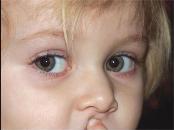What is diphtheria? What are the causes and symptoms of diphtheria? How does diphtheria treatment? Answers to these questions you will find in the article.
Content
Bacterial infection, the main clinical manifestations of which are due
diphtheria toxin. Difteria is striking the nose, throat and sometimes skin, but in more
Serious cases can also spread on the heart, kidneys and nervous system. Wide use of DC
Vaccines in the post-war years in many countries practically reduced cases
diphtheria and tetanus and significantly reduced the number of cough cases.
However, B
The first half of the 90s, the diphtheria epidemic arose in Russia caused
which was insufficient coverage by vaccinations of children and adults. Thousands of people
Died from the disease, which could be prevented using vaccination.
What are the causes and symptoms of diphtheria
Difteria causative agent - bacterium,
known as diphtheria toxin.
Exotoxin produce
Toxigenic strains Corynebacterium Diphtheridae, which fall into the blood and
cause tissue destruction in an infected area, usually in the nasal cavity and
Mouth. The course of the disease is severe, strong inxication often occurs
organism, inflammation of the throat and respiratory tract. In addition, in the absence of
Timely treatment of diphteria is fraught with serious complications - edema throat
and respiratory impairment, heart and kidney damage, nervous system.
Diphtheria is transmitted
air drip from patients with diphtheria or healthy
bacteria carriers, in rare cases - through infected items (for example,
clothes, toys or dishes).
Difteria proceeds in different ways,
However, in all cases the following symptoms are observed:
 Discharge from the nose, as
Discharge from the nose, asRuthfully
The symptom meets quite rarely)
nodes
Treatment of diphtheria
Treatment of diphtheria at an early stage
Provides complete recovery, without any complications, although
The duration of cure depends on the severity of infection. With absence
Timely treatment is possible serious complications, including heart,
which can lead to coma, paralysis or even a fatal outcome.
With suspected diphtheria or
Diagnosing this infectious disease is extracted
hospitalization because the patient needs bed and careful
Nursing care. Special attention should be paid to power, receiving fluid,
Prevention of hypoxia.
To destroy bacteria patients
Excribe antibiotics, and also make vaccination in order to prevent diphtheria
in future.
The main and most effective
The method of preventing diphtheria - vaccination. Vaccine against diphtheria (anatoxins)
introduced in a single dose of intramuscular children of younger and preschool age,
Senior Children and Adults can be introduced deeply subcutaneously. Secondary injection
Anatoksins are introduced to children of school age, and repeat it in 10 years when
Children erect school (t.E. at 16 - 18 years old).









